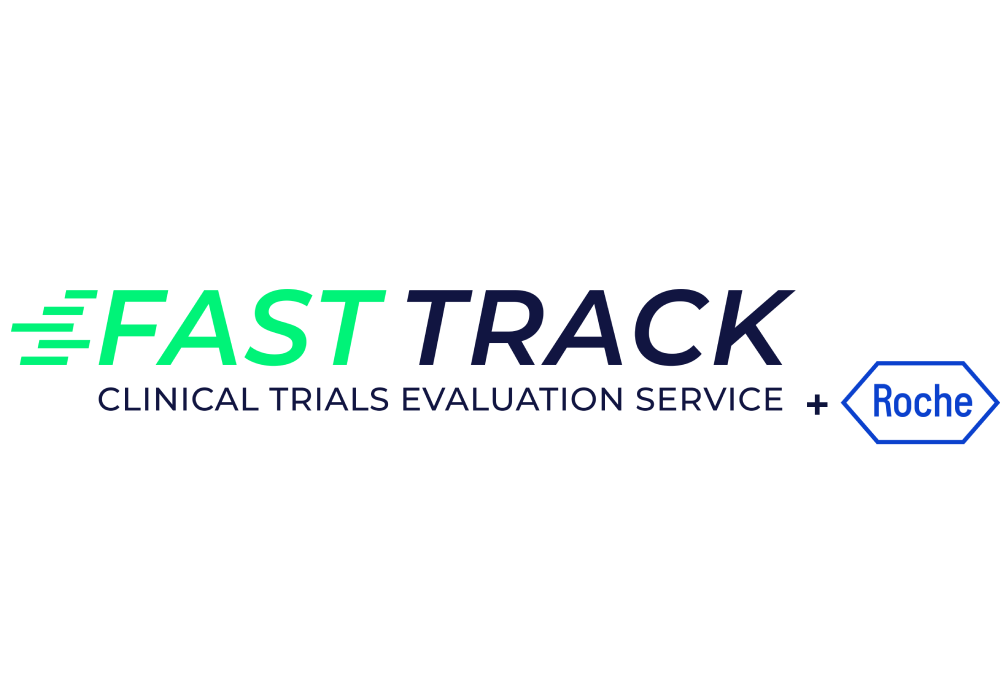The CHU de Québec-Université Laval Recruits the First Two Participants Worldwide for a Clinical Trial on Breast Cancer by Roche, With the Support of the FAST TRACK Evaluation Service
The research team led by Dr. Julie Lemieux of CHU de Québec-Université Laval recently recruited the first two participants worldwide for a phase III breast cancer study. With the support of CATALIS’ FAST TRACK Evaluation Service, the health institution authorized and activated the Roche pharmaceutical company’s pionERA study in a record time of 10.2 weeks. The CHU de Québec was, therefore, the fourth site activated worldwide out of the 300 sites in 30 countries where this study is being conducted.
“Roche Canada is committed to meeting the current and future healthcare needs of Canadians by providing better care, faster. In partnership with CHU de Québec and CATALIS on the pionERA clinical trial, we recruited the world’s first and second patients with ER-positive and HER2-negative advanced breast cancer. By leveraging the FAST TRACK Evaluation Service, we accelerated the clinical trial start-up, showcasing Quebec’s exceptional leadership and making it a top location in Canada for clinical trials. It’s through collaboration and action like this that we aim to deliver life-changing medicines to patients rapidly and efficiently – reducing the burden of illness.”
– Brigitte Nolet, President and CEO of Roche Pharma Canada
The CHU de Québec and Roche at the Forefront of Breast Cancer Patients’ Well-Being
The CHU de Québec-Université Laval’s breast disease research group is recognized for its pioneering initiatives aiming to reduce the impact of treatment on patients’ lives. Dr. Julie Lemieux, a hematologist-oncologist and member of the research group, is working with her team to improve breast cancer patients’ quality of life while studying the toxicity of treatments for this disease.
“Dr. Lemieux, along with her team and colleagues at the CHU de Québec-Université Laval, are proud to be part of the pionERA study and to have recruited the world’s first two participants. Thanks to the dedicated work done by Fanie Bourgault, Judith-Elise Marcoux, and CATALIS’ FAST TRACK Evaluation Service, our site was one of the first to have been activated. In addition, thanks to nurse specialist, Justine Pringalle’s determination, two participants were able to quickly complete the selection process and be enrolled in the study. Dr. Lemieux would also like to highlight Roche’s Agota Ferenc’s effective collaboration in helping to launch our site. This great teamwork is what lets us reach these high standards of efficiency.”
– Eric Vachon, Ph.D., director of operations of the CHU de Québec-Université Laval’s centre for breast disease’s clinical research unit
The pionERA Study Offers Hope of a New Treatment for ER+ Breast Cancer
The pionERA study aims to evaluate the efficacy and safety of a new potential drug, for patients who have developed resistance to current endocrine therapy for ER+ breast cancer.
Breast cancer is the second leading cause of death in women due to the rapid metastasis and the disease’s recurrence. It is also estimated that in 2024, 290 new cases of breast cancer will be diagnosed in men in Canada, an increase of 11% compared with 2023¹. In 70% to 80% of people diagnosed with breast cancer, the disease is attributable to mutations that lead to an overabundance and hyperactivity of estrogen receptors in the breast; this is known as ER+ breast cancer. At present, fulvestrant is the primary endocrine treatment used for ER+ breast cancer. The molecule works by attaching itself to the receptors on breast cancer cells, preventing estrogen from attaching and thereby promoting its breakdown. However, up to 20% of patients with ER+ cancer develop resistance to fulvestrant, leading to the cancer’s recurrence.
Roche’s pionERA study is assessing a promising new treatment, which could overcome resistance to endocrine therapies, prolong patients’ lives, reduce the risk of recurrence, and improve patient tolerability and quality of life. The pionEra study is being conducted on subgroups of patients classified according to their disease’s characteristics, allowing for better customization of treatments for participants. The study aims to recruit 1,050 people worldwide, including 30 patients in Quebec.
“Treatment resistance is a major issue for patients with hormone receptor-positive breast cancer. The Quebec Breast Cancer Foundation is delighted with the success of this FAST TRACK Evaluation, enabling Quebec women to benefit first from this therapy and paving the way for others.”
– Karine-Iseult Ippersiel, President and CEO of Quebec Breast Cancer Foundation
Are you interested in participating in this clinical trial or in other breast cancer studies? We offer a free Personalized Support Service to help guide you in your search for clinical trials. You can also access Clinical Trials Quebec’s information and services hub. This site contains easy-to-understand educational content, graphics, and free tools which will help you to better understand clinical research and what happens during a clinical trial.
Patients at the Heart of the CATALIS Quebec Network’s Mission and of Its FAST TRACK Evaluation Service
Thanks to the commitment of healthcare institutions such as the CHU de Québec and pharmaceutical companies such as Roche, CATALIS and its Network of Partners are delighted to stimulate innovation in clinical research and reduce clinical trial authorization times by almost 75%. The aim is to accelerate the development of potential treatments that could improve the lives of patients in the province.
CATALIS would like to thank all its public and private partners for their trust, participation in developing innovative clinical research approval methods, and commitment to implementing accelerated clinical trials in their institutions.
If you would like more information about the FAST TRACK Evaluation Service, please write to us at: info@catalisquebec.com.
¹Canadian Cancer Society (2024). Breast Cancer Statistics. Available at: https://cancer.ca/en/cancer-information/cancer-types/breast/statistics







